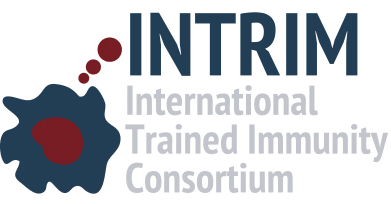Trained immunity and chronic exposure to non-natural bioactive substances
Genomics and Immunoregulation, LIMES-Institute, University of Bonn,
PRECISE Platform for Single Cell Genomics and Epigenomics at the German Center for Neurodegenerative Diseases and the University of Bonn
Research topic
In contrast to acute activation of the immune system by pathogens, the chronic exposure to non-natural bioactive substances introduced by humankind or exposure to non-physiological concentrations of naturally occurring substances can lead to chronic activation and reprogramming of innate immune cells. This chronic low-level inflammatory response is suggested to be responsible for the induction of major non-communicable diseases our societies are suffering from. During this pathophysiological process, particularly the myeloid cell compartment shows functional changes, which are not completely understood. While not beneficial for the host, these changes are believed to be mediated by molecular processes that have been observed in trained immunity (TRIM).
Our group aims at deciphering the molecular mechanisms of low-grade inflammatory reactions by myeloid cells in response to exposure to non-natural bioactive substances or non-physiological concentrations of naturally occurring substances.
Using genomic technologies, we are focusing on reprogramming of myeloid cells including monocytes, dendritic cells and tissue macrophages in response to non-natural bioactive substances or exposure to non-physiological concentrations of naturally occurring substances. We are particularly interested in changes in transcription, epigenetic regulation, and chromatin landscapes. Moreover, we are linking these changes to metabolic dysregulation. In this context, we also want to understand the role of timing in reprogramming of the myeloid cell compartment.
Group leader
Joachim L. Schultze, MD, Professor for Genomics and Immunoregulation
Group members
- Anna Aschenbrenner, PhD, postdoctoral researcher in molecular and cellular immunology
- Wataru Fujii, MD, PhD, postdoctoral researcher in immunology
- Kristian Händler, PhD, postdoctoral researcher in genomics
- Thomas Ulas, PhD, bioinformatician
- Claus Scholz, PhD, bioinformatician
- Pawel Biernat, PhD, bioinformatician
- Matthias Becker, PhD, bioinformatician
- Patrick Günther, PhD-student in systems immunology
- Kevin Baßler, PhD-student in systems immunology
- Jonas Schulte-Schrepping, PhD-student in systems immunology
- Stefanie Herresthal, PhD-student in systems immunology
- Anna-Lena Hardt, PhD-student in immunology
- Jil Sander, PhD-student in bioinformatics
- Olympia Papantonopoulou, PhD-student in tumor immunology
- Sander Tuit, PhD-student in tumor immunology
Selected Publications
- Heidkamp GF#, Sander J#, Lehmann CHK, Heger L, Eissing N, Baranska A, Lühr JJ, Hoffmann A, Reimer KC, Lux A, Söder S, Hartmann A, Zenk J, Ulas T, McGovern N, Alexiou C, Spriewald B, Mackensen B, Schuler G, Schauf B, Forster A, Repp R, Fasching PA, Purbojo A, Cesnjevar R, Ullrich E, Ginhoux F, Schlitzer A, Nimmerjahn F, Schultze JL*, Dudziak D*. Human lymphoid organ dendritic cell identity is predominantly dictated by ontogeny, not tissue microenvironment. Science Immunol. 2016 Dec 16; 1(6), DOI: 10.1126/sciimmunol.aai7677, # shared first authors, * shared last authors
- Mass E#, Ballesteros I#, Farlik M#, Halbritter F#, Günther P#, Crozet L, Jacome-Galarza CE, Händler K, Klughammer J, Kobayashi Y, Gomez-Perdiguero E, Schultze JL, Beyer M*, Bock C*, Geissmann F*. Differentiation and specification of tissue-resident macrophages. Science, 2016;353(6304). pii: aaf4238. 10.1126/science.aaf4238, #shared first authors, * shared last authors
- Hagemeyer N, Kierdorf K, Frenzel K, Xue J, Ringelhan M, Abdullah Z, Godin I, Wieghofer P, Costa Jordão MJ, Ulas T, Yorgancioglu G, Rosenbauer F, Knolle PA, Heikenwalder M, Schultze JL, Prinz M. Transcriptome-based profiling of yolk sac-derived macrophages reveals a role for Irf8 in macrophage maturation. EMBO J. 2016 Jul 13. pii: e201693801.
- Zimmer S, Grebe A, Bakke SS, Bode N, Halvorsen B, Ulas T, Skjelland M, De Nardo D, Labzin LI, Kerksiek A, Hempel C, Heneka MT, Hawxhurst V, Fitzgerald ML, Trebicka J, Björkhem I, Gustafsson JÅ, Westerterp M, Tall AR, Wright SD, Espevik T, Schultze JL, Nickenig G, Lütjohann D, Latz E. Cyclodextrin promotes atherosclerosis regression via macrophage reprogramming. Sci Transl Med. 2016 Apr 6;8(333):333ra50. doi: 10.1126/scitranslmed.aad6100
- Beyer M, Abdullah Z, Chemnitz JM, Maisel D, Sander J, Lehmann C, Thabet Y, Shinde PV, Schmidleithner L, Köhne M, Trebicka J, Schierwagen R, Hofmann A, Popov A, Lang KS, Oxenius A, Buch T, Kurts C, Heikenwalder M, Fätkenheuer G, Lang PA, Hartmann P, Knolle PA, Schultze JL. Tumor-necrosis factor impairs CD4(+) T cell-mediated immunological control in chronic viral infection. Nat Immunol. 2016 May;17(5):593-603. doi: 10.1038/ni.3399. Epub 2016 Mar 7.
- Ginhoux F, Schultze JL, Murray PJ, Ochando J, Biswas SK. New insights into the multidimensional concept of macrophage ontogeny, activation and function. Nature Immunol. 2015 Dec 17;17(1):34-40. doi: 10.1038/ni.3324.
- Schultze JL, Freeman T, Hume DA, Latz E. A transcriptional perspective on human macrophage biology. Semin Immunol. 2015 Feb;27(1):44-50. doi: 10.1016/j.smim. 2015.02.001. Epub 2015 Apr 3.
- Xue J, Schmidt SV, Sander J, Draffehn A, Krebs W, Quester I, De Nardo D, Gohel TD, Emde M, Schmidleithner L, Ganesan H, Nino-Castro A, Mallmann MR, Labzin L, Theis H, Kraut M, Beyer M, Latz E, Freeman TC, Ulas T, Schultze JL. Transcriptome-based network analysis reveals a spectrum model of human macrophage activation. Immunity. 2014 Feb 20;40(2):274-88. doi: 10.1016/j.immuni.2014.01.006. Epub 2014 Feb 13.
- De Nardo D, Labzin LI, Kono H, Seki R, Schmidt SV, Beyer M, Xu D, Zimmer S, Lahrmann C, Schildberg FA, Vogelhuber J, Kraut M, Ulas T, Kerksiek A, Krebs W, Bode N, Grebe A, Fitzgerald ML, Hernandez NJ, Williams BRG, Knolle P, Kneilling M, Röcken M, Lütjohann D, Wright SD, Schultze JL, Latz E. High-density lipoprotein mediates anti-inflammatory transcriptional reprogramming of macrophages via the transcriptional regulator ATF3. Nat Immunol, 2014 Feb;15(2):152-60. doi: 10.1038/ni.2784. Epub 2013 Dec 8. shared last author
- Murray PJ, Allen JE, Biswas SK, Fisher EA, Gilroy DW, Goerdt S, Gordon S, Hamilton JA, Ivashkiv LB, Lawrence T, Locati M, Mantovani A, Martinez FO, Mege JL, Mosser DM, Natoli G, Saeij JP, Schultze JL, Shirey KA, Sica A, Suttles J, Udalova I, van Ginderachter JA, Vogel SN, Wynn TA. Macrophage Activation and Polarization: Nomenclature and Experimental Guidelines. Immunity. 2014 Jul 17;41(1):14-20. doi: 10.1016/j.immuni.2014.06.008
Financial support
- DFG Excellence Cluster ImmunoSensation
- DFG Sonderforschungsbereich 704 Local Immunoregulation
- Horizon 2020 grant SYSCID (H2020-)
- BMWi FastGenomics
